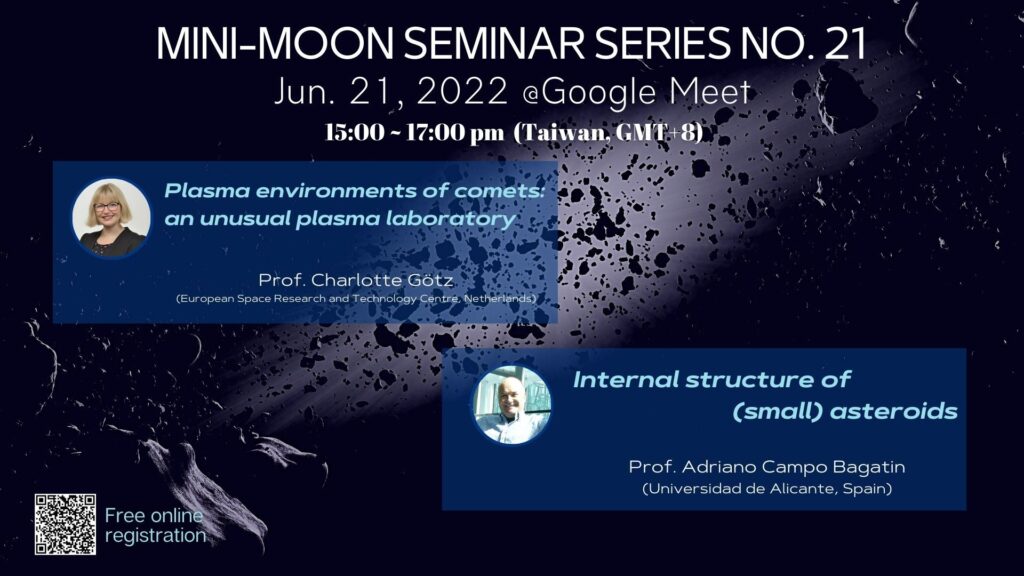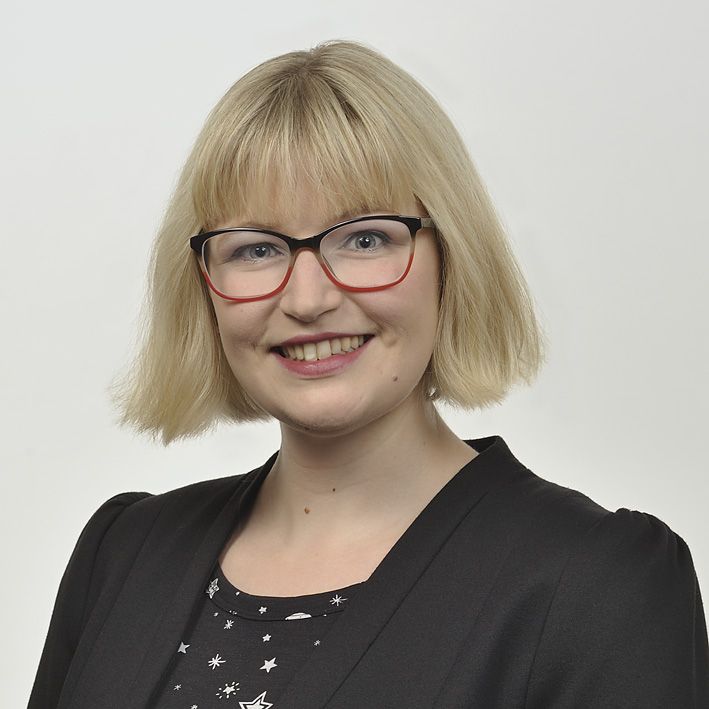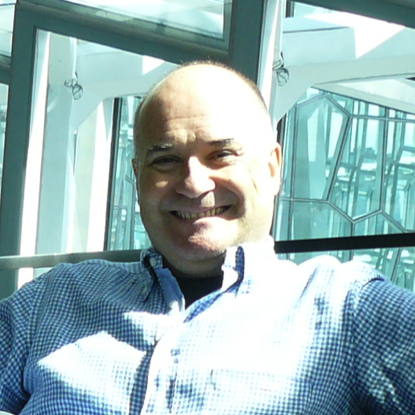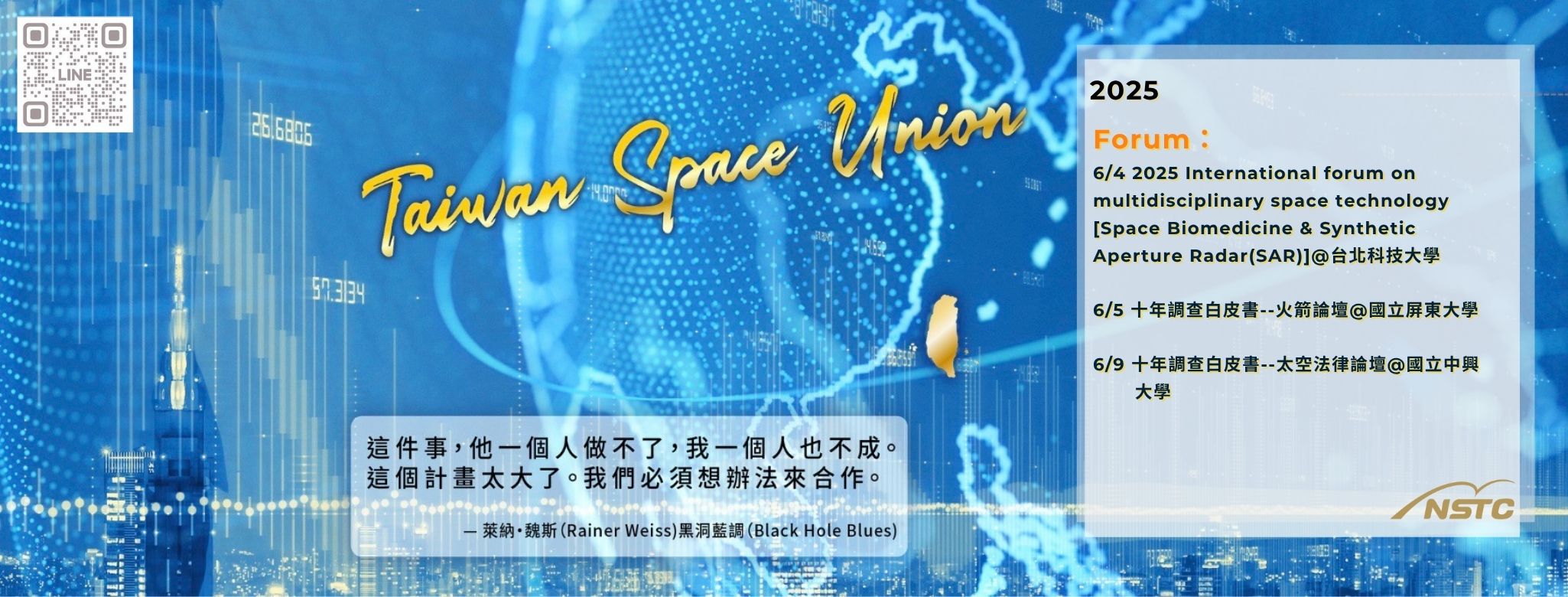
Speakers

Prof. Charlotte Götz
Education:
Aug. 2014 – April 2019 PhD Studies, Technische Universität Braunschweig.
Degree: PhD in Physics (Dr. rer. nat), Grade: excellent (summa cum laude),
Title:The plasma environment of comet 67P/Churyumov-Gerasimenko
Aug. 2012 – Jul. 2014 Graduate Studies, Technische Universität Braunschweig.
Degree: Master of Science Physics, Grade: 1.5, Title: Cometary tail disconnection events
Aug. 2012 – Jun. 2013 Graduate Studies, Georgia Institute of Technology.
Major: Physics, Minor: Aerospace Engineering
Oct. 2009 – Jul. 2012 Undergraduate Studies, Technische Universität Braunschweig.
Degree: Bachelor of Science Physics, Grade: 1.6, Title: Determination of magnetosheath thickness on the basis of THEMIS spacecraft data
Work Experience:
Since Aug. 2019 Internal Research Fellow, ESTEC, European Space Agency.
→ Plasma Working Group Lead for M6 proposal Castalia+, a mission to a main belt comet
→ Science exploitation of spacecraft data at comets, Mars, Mercury and in the solar wind
→ Organization of successful hybrid and virtual multi-day meetings for the scientific community (e.g. ISSI team meetings)
→ Representation of ESA at outreach events, e.g. at ESTEC open day, in collaborations with YouTubers, at press conferences, at major science fiction conventions, comet expert for ESA communications
→ Supervision of two summer students Since Jul. 2019 Member of the Comet Interceptor Team, ESA Comet Interceptor Mission.
→ Science Co-I of the magnetometer on spacecraft A and B2
→ Hardware representative of the magnetometer on spacecraft A
→ Contributions to the mission proposal, science requirements document, Redbook, EID-A/B, and IIDD
Research Interests:
→ Cometary plasma physics
→ Planetary magnetospheric physics, especially at unmagnetized bodies
such as Mars and Venus
→ Instrument development
→ Plasma physics
→ Solar wind plasma

Prof. Adriano Campo Bagatin
My research carrier started with my Degree thesis at University of Pisa (I), leading to the discovery of an effect common to all collisional systems (Campo Bagatin et al., 1994). In 1997, I got my Ph.D. at the University of Valencia (E) with a thesis on collisional systems in the solar system. Both were co-supervised by Dr. Paolo Farinella (U. Pisa, I9
During my post-doctoral stays at the Observatoire de la Côte d’Azur, Nice (F) (Henrí Poincarè fellowship, 1998/99), and at the Physikalisches Institut, University of Bern (CH) (European Space Agency fellowships, 2000 and 2001), I worked on collisional processes, internal structure of asteroids and planet formation, using theoretical and numerical tools.
In 2001, we published the first estimation of the abundance of asteroid gravitational aggregates (rubble-piles) in the asteroid belt (Campo Bagatin, Petit and Farinella, 2001), establishing the definition of gravitational aggregate adopted in literature there since.
In 2002 I was hired full time at University of Alicante.
In 2002 I joined the Canadian-France Ecliptic Plane Survey, an observational survey that led to the complete dynamical characterization of Transneptunian objects and to the discovery of peculiar dynamical systems. (Petit et al., Science, 2008).
In the last decade, I have focused on theoretical studies and numerical N-body simulations of the re-accumulation process leading to the formation of gravitational aggregates and on rotational properties of asteroids and TNOs and their evolution towards the formation of binary systems. Also, I collaborated to the search and interpretation of ring formation around small bodies and dwarf planets in the Solar System through occultation techniques in collaboration with the group led by J.L. Ortiz at the IAA in Granada.
During my sabbatic stay at the South-west Research Institute (Boulder, CO, USA) in 2013, I joined Dr. D.D. Durda’s project on high speed collisional experiments at AVGR laboratory at NASA-Ames (Mountain View, CA, USA) and a NASA PG&G experimental study at Ball Aerospace on granular materials to be applied to small Solar System bodies. We are currently using the results of such projects to improve our models.
I was a promoter of the MarcoPolo-R space mission to ESA (2010-2013) and co-
chaired the working group on mechanical properties of the NEA target of that mission.
Since 2015 I joined the Coordinating Committee of the ESA-NASA joint collaboration AIDA (Asteroid Impact Deflection Assessment) for the DART (NASA) and Hera (ESA) space missions. On the Hera side, I co-chair the working group on dynamics of the NEA target of the mission, (65803) Didymos. On the DART side, I am part of the Investigation Team of the mission.
Since February 2020, I am the responsible for the Universidad de Alicante, of a work package of the H2020 European Commission project, NEO-MAPP, to be developed at UA.
Since 2005, I have led, as a PI, 5 national projects (AYA/Retos) and took part to 4 international projects.
In the 2009–2018 period I was coordinating the Spanish community of Planetary Science and SS Exploration.
I was invited to give talks at different institutions world-wide (OCA, F; Univ. Bern, CH; SWRI, USA; Univ. of Edinburgh, UK; ESA)
In 2002 I was awarded with the naming of asteroid 13722 as (13722) Campobagatin.
I am member of the Sociedad Española de Astronomía, the Europlanet Society (EPS) and the International Astronomical Union.
I am the representative for Spain at the EPS.
I have organized many outreach events since 2002 sponsored by the Universidad de Alicante, including Asteroid Day. I took part to the UA program for outreach with talks at school, Mednight, Summer schools and 2 courses for people over 50 (Univ. Permanente, UA). I was invited at talks at Museo de las Ciencias (Valencia). I take part to 2021/22 CAESARS Teachers Training. I participated in audio-visual and physical outreach material set up.
My teaching career at University started in 1999/2000 at the UMH and followed, since 2000/01 at UA EPS (Polytechnical Scool). It covered subjects in the 1st and 2nd courses on statistics (1999/2000), general physics (since 2000/01) to engineering and architecture students, a subject of Planetary Physics during two courses (end of 2000-2010 decade) in the PhD program of the Department and the subject of Electromechanics for students in the Master on Automatics and Robotics at UA, during 4 courses. I was teaching the subject on Solar System at the Astrophysics Master Degree at the VIU during 3 courses.
I supervised 3 PhD thesis (+ 2 ongoing), 3 Master degree thesis and 4 TFG (end of degree project).
I published more than ten didactical research papers and co-produced teaching materials as videos for experimental subjects.
Plasma environments of comets: an unusual plasma laboratory
Prof. Charlotte Götz

